
**************************************
Join me for an upcoming Workshop:
Can't make these Workshop dates? Join me for a self-paced on-demand course:
Sue Larkey On-Demand Workshops
**************************************
I’ve had a lot of questions in regards to eye contact and understandably so since eye contact is an important part of communication and socialisation. It demonstrates an awareness of and interest in the other people. However, for children with ASD it doesn’t come naturally and has even been reported as ‘painful’ by people with ASD to look at people’s eyes. In many cases when children are not looking at people’s eyes /faces, people assume the child is not paying attention or listening. However, we must be cautious not to assume that not looking means not listening, in fact many children report listening best with their eyes closed or when they look away.
Teaching eye contact is very difficult, as in society when we communicate we actually use an ‘eye gaze’ rather than eye contact (staring into eyes). I’ve had students who have been taught eye contact rather than eye gaze, they then tend to stare deep into your eyes, which people generally find very uncomfortable too. I prefer to teach Eye gaze through looking at people’s faces rather than directly at the eyes. Some children are best if you choose a specific part of the face, like ears, eyebrows, mouth or nose. It is an important skill to teach students to look in the direction of the speaker and at their face if possible.
Pathological Demand Avoidance (PDA)
in the Classroom: Understanding and Teaching Strategies for Educators
(AS, PDA, ODD, ADHD, etc)
✅ Understanding of Pathological Demand Avoidance (PDA)
✅ What are Demands and How to Avoid
✅ PDA & Anxiety: Key Strategies
✅ Difference between PDD, ODD, and ASD
✅ Practical Approaches and Strategies to Support Learning
✅ Supporting and Understanding Behaviour
✅ PDA and Education: How to Make it WorkWhat, How & When to teach Social Skills
 2 Hours
2 Hours
 Certificate
Certificate
$149
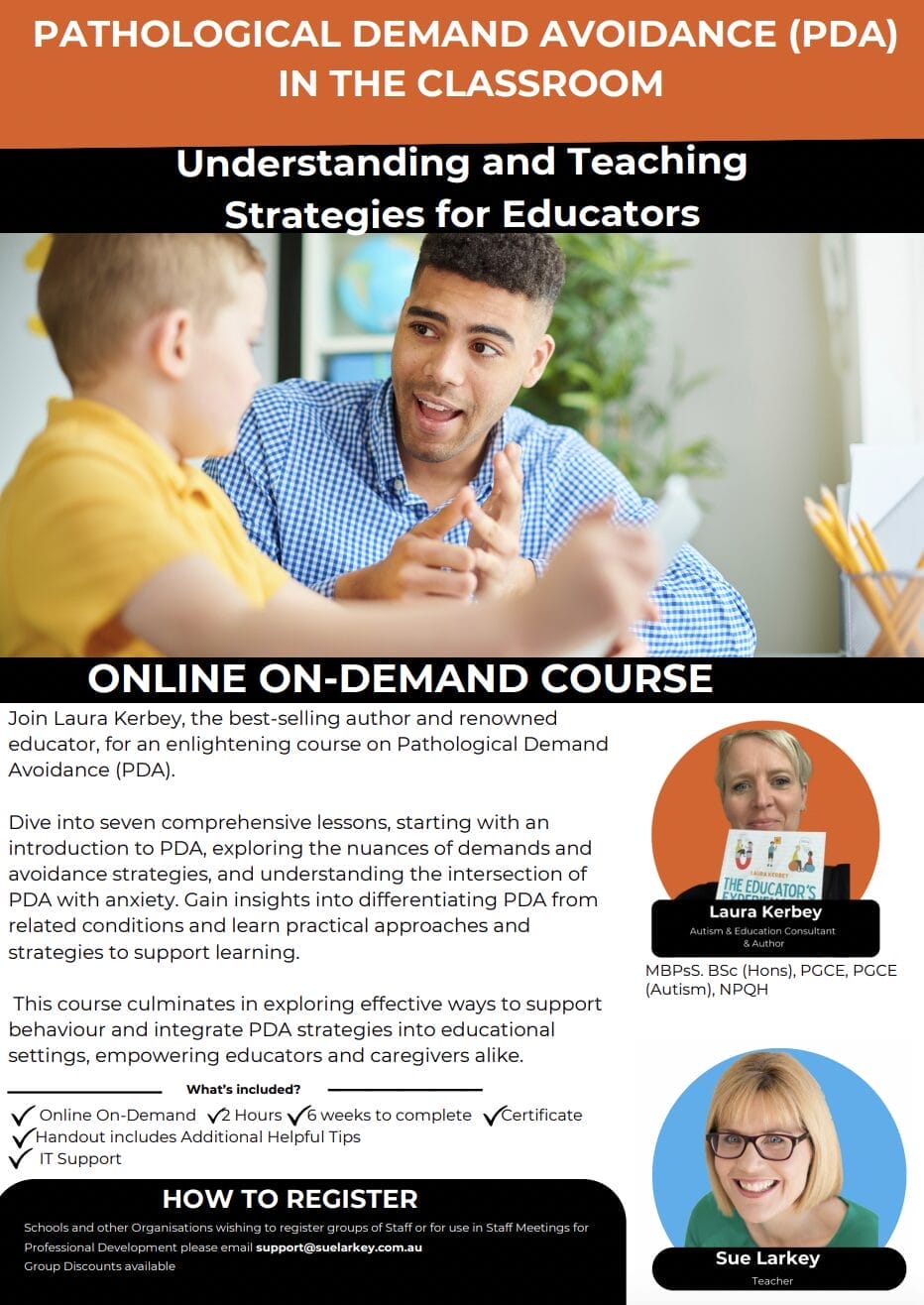
| by Sue Larkey & Gay von Ess | This book is full of practical ideas to give children with an ASD and other developmental delays the KEYS to learning. Teaching to play, write, draw, imitate etc. Toilet training, community access, etc. To sit, ask for help, wait, play, attention to task, sign songs, etc. Great easy to photocopy programmes.
15 in stock
Additional Resources:
-

Tips for Toileting
$29.95 -
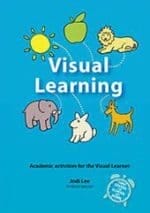
Visual Learning
$39.95 -
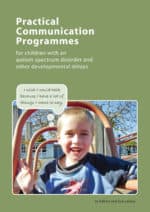
Practical Communication Programmes
$44.95 -

Off to School Package
$340.00 -

I’m Going to School
$30.00 -
Sale!
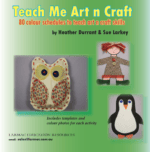
Teach Me Art n Craft CD
Original price was: $25.00.$5.00Current price is: $5.00. -

Motivate to Communicate
$45.95 -

Songames For Sensory Processing
$49.95 -

Starting Sensory Therapy
$38.95 -

The Ultimate Guide to School and Home
$44.95
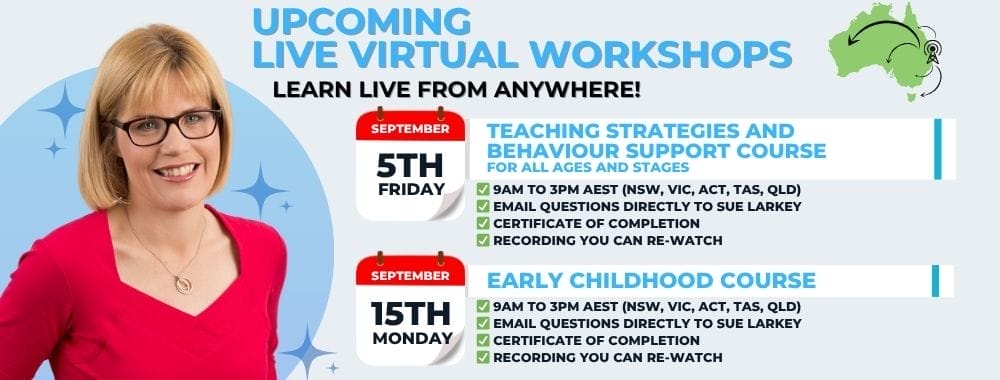

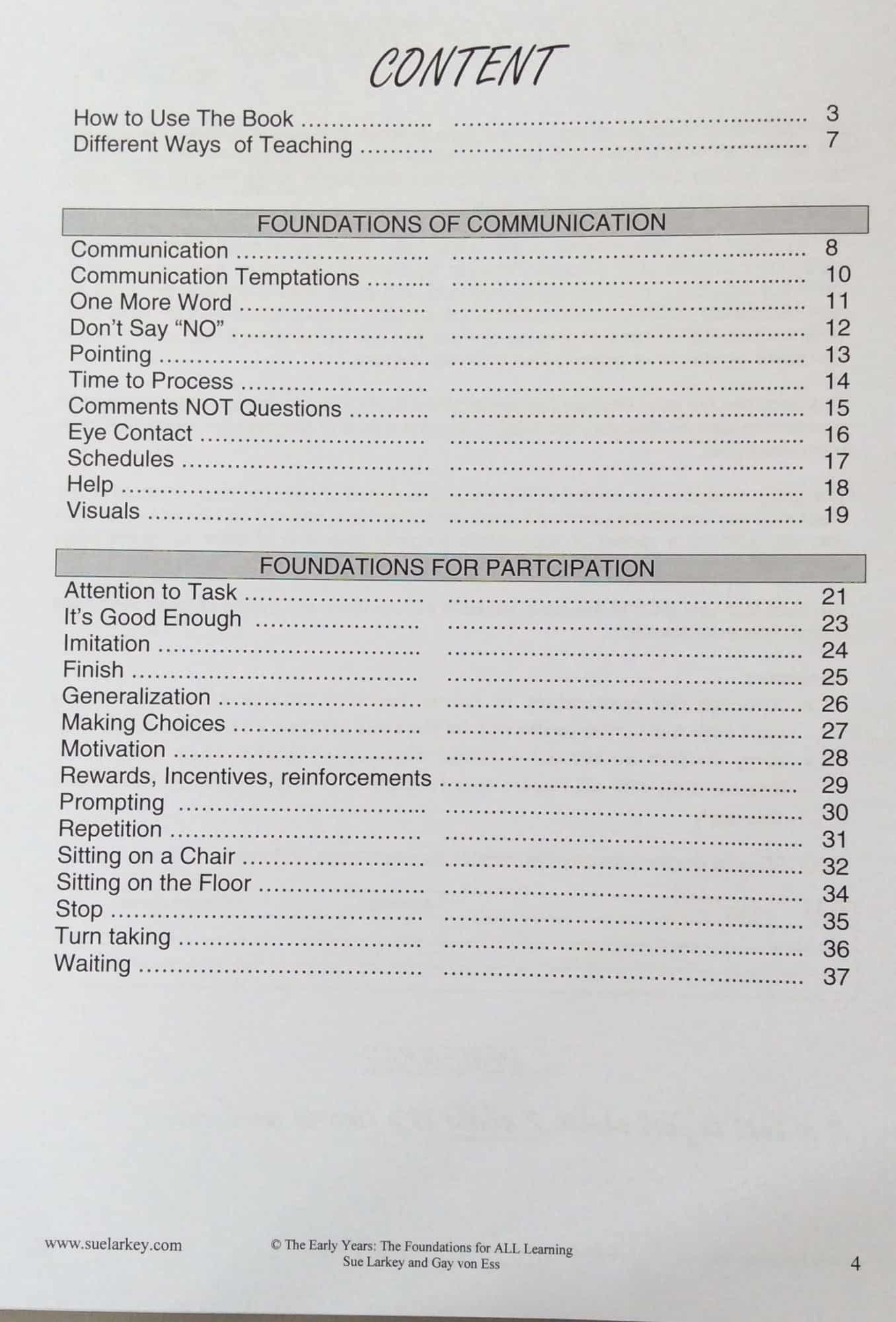
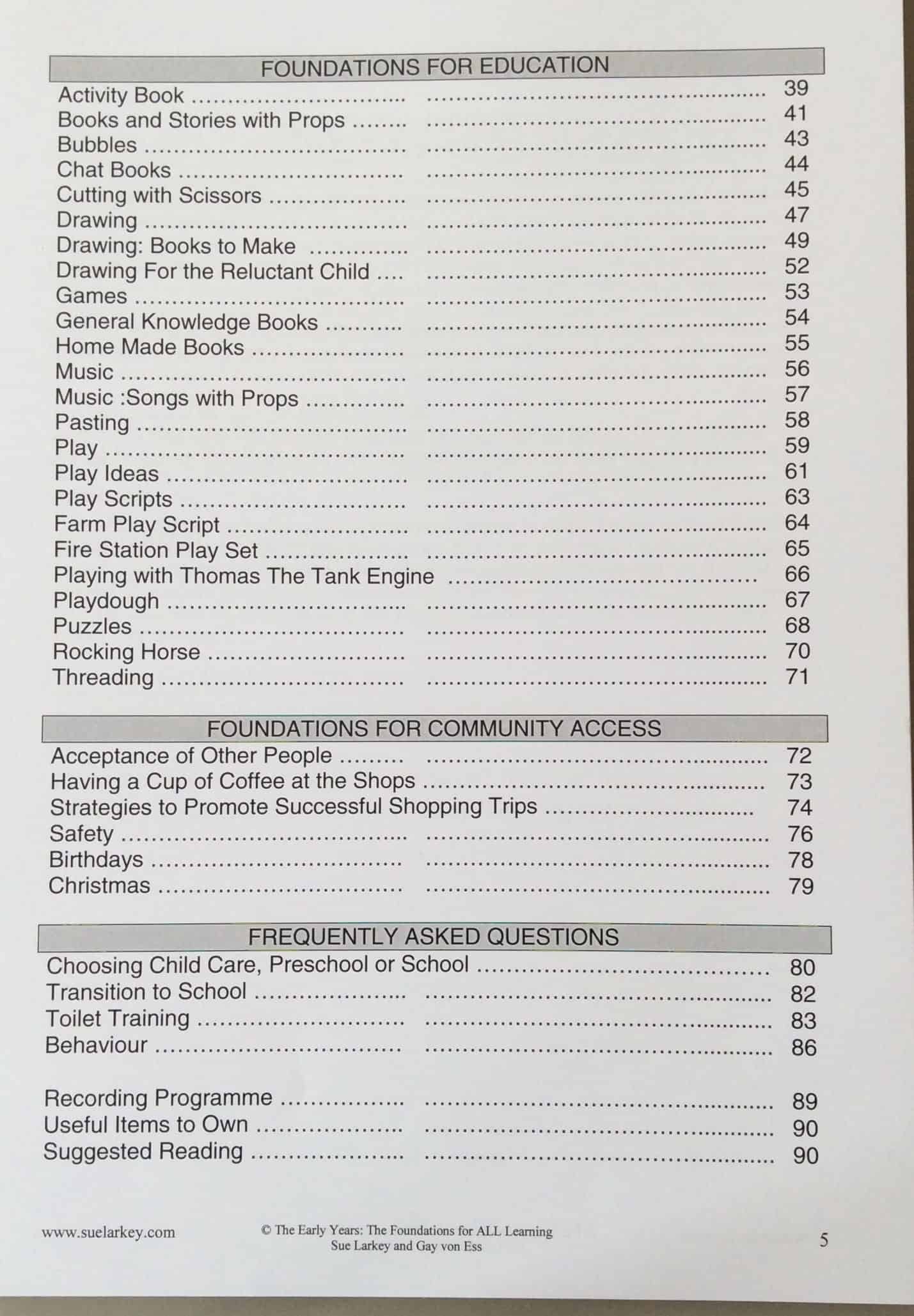
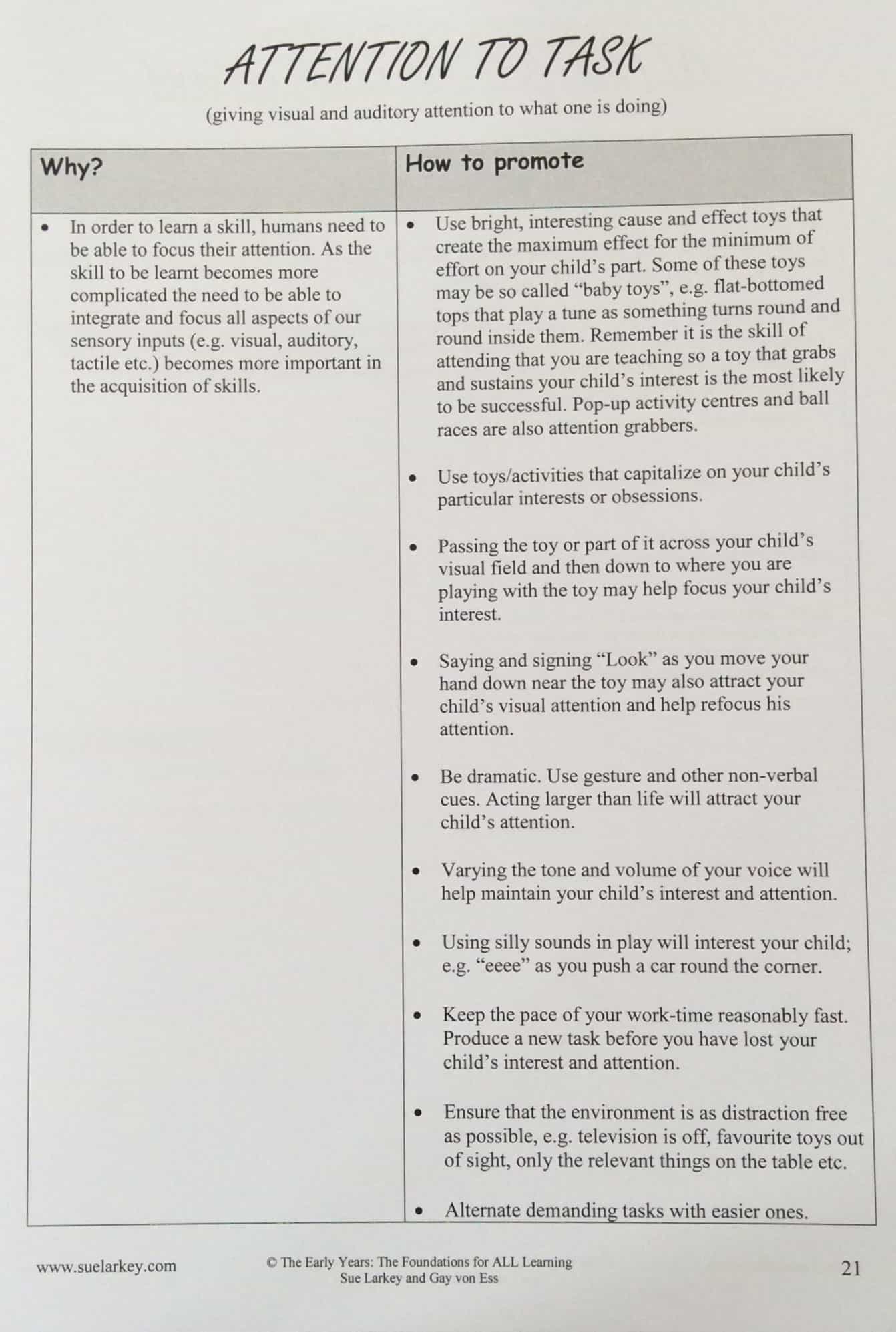
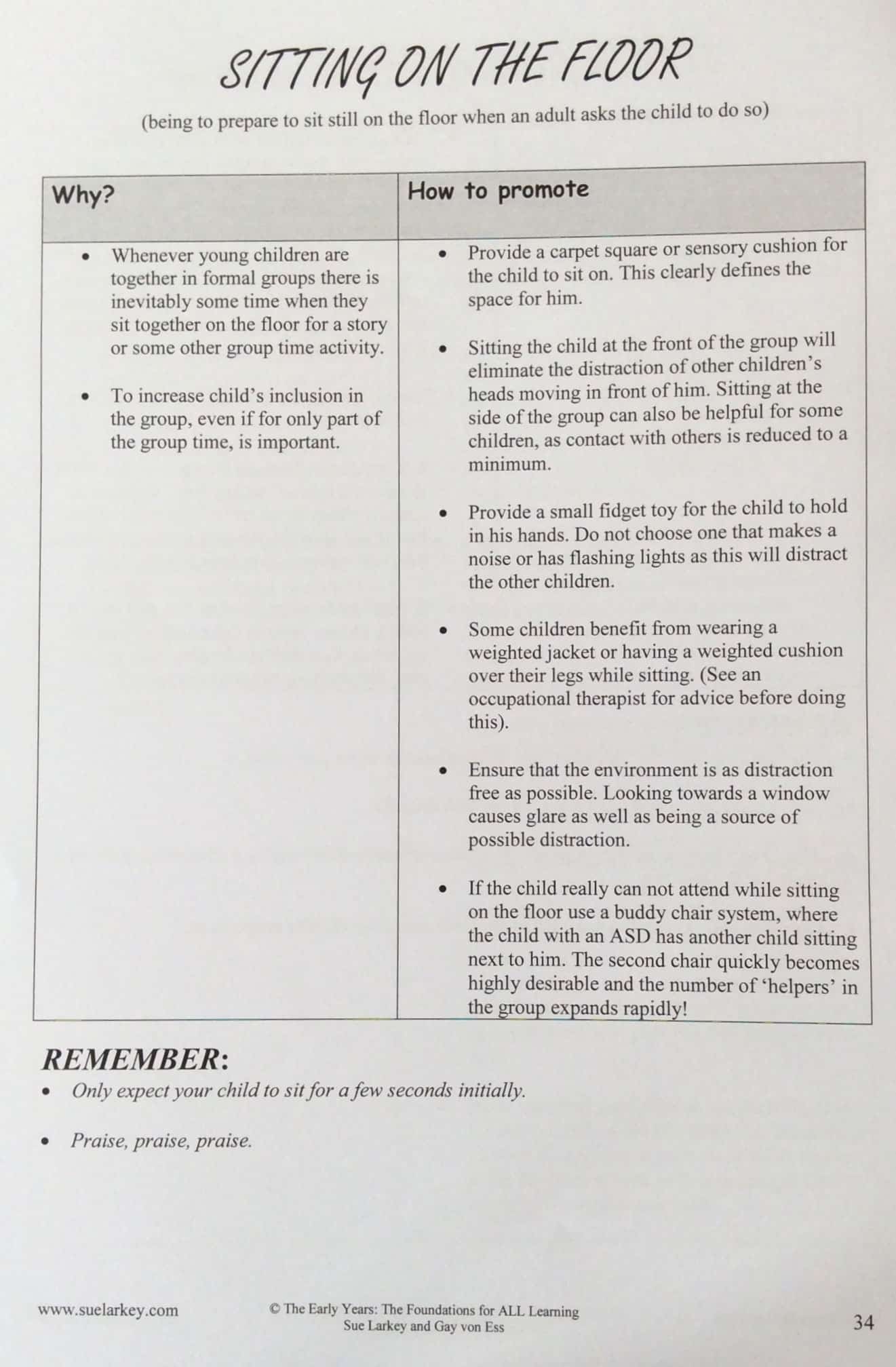

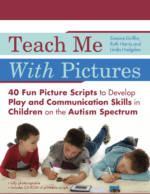


 Sorry we no longer ship items outside Australia. Please consider the digital versions of Sue’s Books –
Sorry we no longer ship items outside Australia. Please consider the digital versions of Sue’s Books – 